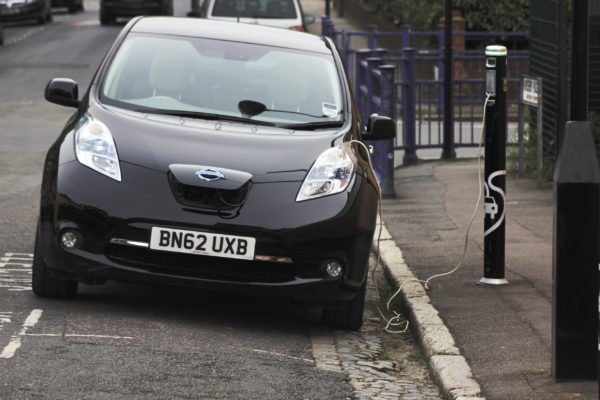Oil and gas giant BP has announced the purchase of the U.K.’s largest charge point supplier and operator, Chargemaster. It is the latest in a string of acquisitions in the battle for electric vehicle (EV) customers, and BP appears to follow in the footsteps of Shell, its key rival in the oil industry. What then does the EV business mean for the business model of an oil major?
Diversification
We analyzed the market in Europe for EV charging and identified four main types of customer proposition:
- Domestic electricity tariffs: selling kWh to EV customers (such as 100% renewable or with peak/off-peak price structures)
- Access to public charge point networks: providing access to a network of charging locations outside the home
- Enablers and services, such as hardware and software: for example, charge points or back office platforms that enable seamless billing
- The all-in-one mobility bundle: selling kilometers, not kWh
Until recently, EV retail opportunities were the domain of electricity retailers and EV charging specialists but, over the last 12 months, oil majors are increasingly entering into the EV market and building a portfolio that will enable them to start developing a range of EV customer propositions.
Shell has been the key early mover and its acquisitions of First Utility and NewMotion bring them frontline access to charging retail at home and in public. Further, investments in innovative hardware companies (such as sonnen in Germany) and the launch of the Shell Recharge network in the U.K. cement this.
With Chargemaster, BP has now entered the scene, targeting the access proposition. While Chargemaster operates 6,500 charge points in public, over 30,000 units are installed in U.K. homes. With the new name of BP Chargemaster, BP could supply branded hardware to EV drivers, entering a new customer proposition.
The next steps for BP’s investments? To follow in Shell’s (and Total’s) footsteps, an energy retailer would unlock the tariff propositions to BP. Furthermore, Chargemaster is U.K.-centric, while Shell’s interests have a wider territory across continental Europe. It seems likely therefore that BP will seek similar regional players in other countries to build their own international EV network business.

Reinforcement
Underneath the headline of the acquisition was also the announcement that BP will roll out ultra-fast charge points. This strategy to develop ultra-fast charging solutions is apparent across BP’s business: Other recent R&D investments have been FreeWire (mobile fast charging devices) and StoreDot (ultra-fast charging batteries).
The development of ‘ultra-fast’ or HPC (high-powered charging) solutions will allow EV customers to recharge in around 10 minutes. Such high charging speeds will create a very similar experience to the current refuelling practice in terms of location, time, and probably cost. This is designed to retain customers and, therefore, it is a reinforcement of BP’s business model. But with other charging options available, will customers choose this?
Delta-ee’s customer research has shown that such ultra-fast public solutions are likely to play a slender role in the charging of EVs in the next decade – if people can charge at home, they will choose to do so. However, this slender role is a significant one. The mere presence of obvious and accessible charging opportunities distributed across the road network is a critical enabler to the adoption of EV, even if the customer seldom uses it. But generating a return from these assets will not be easy.
What next?
With Chargemaster as a partner, BP is well positioned to maintain its leading position as a fuel retailer in the U.K. This acquisition is another clear signal that even the oil majors see internal combustion engine vehicles being challenged. However, while clearly the majors are aiming to protect and monetize their existing fuels retailing assets through the development of their EV charging activities, whether they can build the scale they will desire without becoming significant players in the home charging market remains to be seen. Therefore, seeing how Shell integrates its recent portfolio of acquisitions will provide insights into the future role of oil majors in the EV market.
For further insight on topics like this, check our latest research service, EVs & Electricity, which is dedicated to exploring and explaining this emerging new energy market.
Alexander Lewis-Jones

Alexander Lewis-Jones joined Delta Energy & Environment in 2018 to help develop a research service dedicated to the interface between electric vehicles and the energy sector. Alexander is an electric vehicles specialist who has been researching the decarbonization of transport for over five years. Before joining, Alexander worked at the U.K.’s Energy Saving Trust delivering a number of projects to support electric vehicle adoption. He has led electric vehicle trials and delivered research on barriers to adoption and charge point network requirements.
This content is protected by copyright and may not be reused. If you want to cooperate with us and would like to reuse some of our content, please contact: editors@pv-magazine.com.